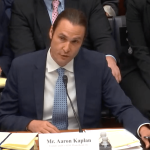Ms Ralhan told SBS that her father, 59, died after contracting coronavirus, three days after the federal government enacted a controversial India travel ban and made it temporarily illegal for citizens and permanent residents stranded there to come back to Australia.Her father became a permanent resident of Australia more than 10 years ago, and often travelled back to India where he managed a hotel in New Delhi. She said that due to his frequent business trips, he hadn’t accumulated enough residency time in Australia to qualify for citizenship, but was planning to apply. Ms Ralhan, her brother, and her mother are Australian citizens.Ms Ralhan made a Facebook post on Thursday as an open letter addressed to Prime Minister Scott Morrison, saying she was “highly disappointed” to be an Australian citizen.Ms Ralhan said her mother has recovered from COVID-19 but is still stranded in India due to the travel ban.“We all want to cry our hearts out,” she wrote, “but we are saving them for when we are all together again.”Ms Ralhan revealed that as her father was dying in hospital it was up to the famly to find and refill oxygen tanks for him and pay for it.On Friday, India logged yet another record number of infections with 414,000 new cases in tthe past 24 hours as well as 4000 deaths.The new wave has spilled over into neighbouring countries including even remote parts of Nepal where two out of five people now test positive.It comes as Australia’s High Commissioner to India Barry O’Farrell was asked at a senate committee hearing on Friday whether he was aware of any Australian citizens who had died of COVID-19 in India while waiting to come home.“The department is aware and providing consular assistance, in accordance with its charter, to the family of an Australian permanent resident who reportedly has died in India,” he said.“I’m advised, owing to our privacy obligations, we won’t be providing any further comment.”He said one of the reasons he wouldn’t make any further comment was because it was not yet clear how the person died and whether it was from COVID-19. However, Mr O’Farrell went on to explain that India has been reporting a nightly infection rate that was “greater than the population of Canberra” and he didn’t believe “anyone can put hand on heart” and say that Australian citizens or permanent residents are not among the deaths.Foreign Minister Marise Payne described India as the “most significant hotspot” in the world but would not elaborate on the Australian’s death.“I don’t think it’s helpful to speculate and particularly out of respect for the family,” she said on 2GB.“I will receive further advice from our posts in India in relation to that, but most importantly let me extend my sympathy, and that of the government, to the family of this person.”INDIA FLIGHT BAN LIFTEDAustralians stranded in India will be given priority on government repatriation flights which will start arriving late next week, Prime Minister Scott Morrison has announced.Mr Morrison said three flights will land in the Northern Territory starting May 15 and returning Australians will quarantine at the Howard Springs facility in Darwin which now has a capacity to take 2000 people — up from 850.Each of the flights will carry 150 people with the vulnerable and families groups kept together. But anyone with the virus will not be allowed to board.“We have rapid antigen testing in place to give ourselves a greater sense of surety that if we are bringing people back to Australia we are minimising the risk of COVID cases of being brought into the country,” Mr Morrison said.“Those charter flights will, of course, be focused on bringing those Australian citizens, residents and families who have been registered with our high commission and consular offices within India. And it will also be targeted on those 900 most vulnerable of the group.”The NT Acting Chief Health Officer, Charles Pain, said it had been important to ensure that the numbers of cases arriving did not potentially overwhelm health systems.“We have now negotiated and agreed to a number of measures that will reduce the number of positives coming through and we are satisfied that we can manage that,” Mr Pain said.Mr Morrison said NSW, Queensland, and Victoria indicated they’ll start taking direct flights from India when the flight ban lifts next week. South Australia is considering the move “very favourably”.Last month the Federal Government banned Australians from returning from India as the country struggled with the world’s worst COVID-19 outbreak. Anyone breaching that ban was threatened with five years in jail or $66,000 fines.Mr Morrison said the biosecurity order banning anyone returning from India had worked “exactly as it was intended to, and that will remain in place with no change until May 15 …”“All of this is about sensibly preventing a third wave of COVID-19 here in Australia, and doing that responsibly, while at the same time doing everything we can to sustainably bring Australians home from what is currently (the) most significant hot spot for those travelling into Australia of anywhere in the world right now,” Mr Morrison said, after a National Cabinet meeting on Friday.Mr Morrison said he would be speaking with the Indian Prime Minister Narendra Modi later in the day.The flights from India will be crewed by Australians and will be provided at no cost to the traveller.He also revealed that 10 per cent of Australians over the age of 16 have now had their first vaccination for COVID-19.India recorded 412,262 new COVID-19 cases on Thursday, the world’s biggest single-day increase since the pandemic began.The Health Ministry India has reported a record 3980 daily deaths, as a second wave of infections spread from cities into rural areas.
Powered by WPeMatico





